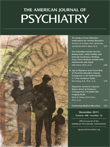Night Call: Poems
The emotive material in a doctor's life (the spiritual counterpoint to the more physical Materia medica) cries out for poetic illumination, yet the psychiatrist/poet, or in the case of Steven Luria Ablon, a psychoanalyst/poet with several collection of poems, is a truly rare species.
R.D. Laing wrote a tortuously dignified prose, but his poems (as in the book Knots) relished in their ability to confuse the reader. Another psychiatrist/poet, Richard Berlin, has for several years hosted a column in Psychiatric Times. He penned a remarkable poem titled “How JFK Killed My Father,” which anchored a book by the same name. Yet the gold standard for physician poetry in English has been set not by psychiatrists but by physical medicine internists, such as Welsh respirologist Dannie Abse, American cardiologist John Stone, and internist Rafael Campo. How well their work compares with poems on medical themes written by lay poets could be debated, but in my own biased view, very well indeed.
That is remarkable, since we physicians, after all, are educated out of our natural minds, and psychiatrists perhaps doubly so. The aspiring psychiatrist/poet must avoid the pitfall of lapsing into prosy medical jargon that, even for a moment, can spoil the mood of a poem. There may also be a tendency to become self-congratulatory about how noble or self-sacrificing it is to wade into the muck of diseased bodies and disordered minds.
In this slender book, Dr. Ablon offers some 67 poems, rather neatly divided into three sections titled “Medical School,” “Residency,” and “Practice.” The poems in the first section are by far the most affecting because medical school is a crucible of experience that no poetically sensitive student can emerge from unmoved, or even unshaken.
When he reviewed for the New England Journal of Medicine an anthology of Canadian physician-written poems I edited, titled The Naked Physician, John Stone quoted his father's remarks about one of his son's books, “Some of the poems are better than others.” The same can be said of the short poems in Night Call, none of which extends beyond three-quarters of a page. There are moments when Ablon reveals genuine imagistic power, worthy of a developing writer whose creative writing instructor once told him: “Just break my heart.” His strong opening poem “Cadaver” recalls Dannie Abse's powerful poem on the gross anatomy lab, “Pathology of Colours.” Ablon's poem ends with the wonderful lines, “Who kissed the crater cheek, this chin,/ the death we call Penelope” (p. 13).
It may simply not be possible to write an excellent poem with a prosaic title like “Disrupted Attachment” or “Associative Anamnesis,” which unnecessarily narrows the poet's audience. Yet there are a dozen memorable poems in this book, and on the whole, it makes for a warm and inviting read, something that cannot be said about many books of modern poetry.
There is a lovely poem on Guillain-Barré syndrome, another on cystic fibrosis, and a third titled “Aspirating a Lung,” which contains surprising baseball metaphors. Here is what the good doctor has to say in a poem nicely titled “Walking Rounds”:
Let me not dispel the refuge/ patients keep beneath their sheets// like icebergs in an arctic ward./ In the first bed, purulent sores,// integument slack as tires flat./When I place my hand upon her arm,// I am transformed by the blood/ of my mothers and fathers.// Every bed embraces a malady/ too terrified to sleep. (p. 17)



